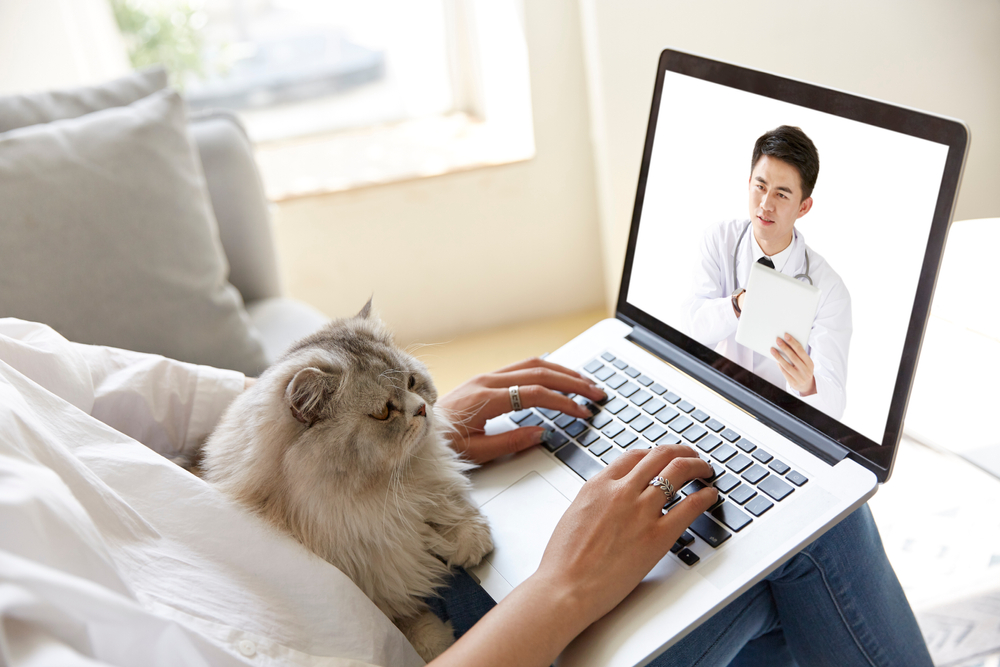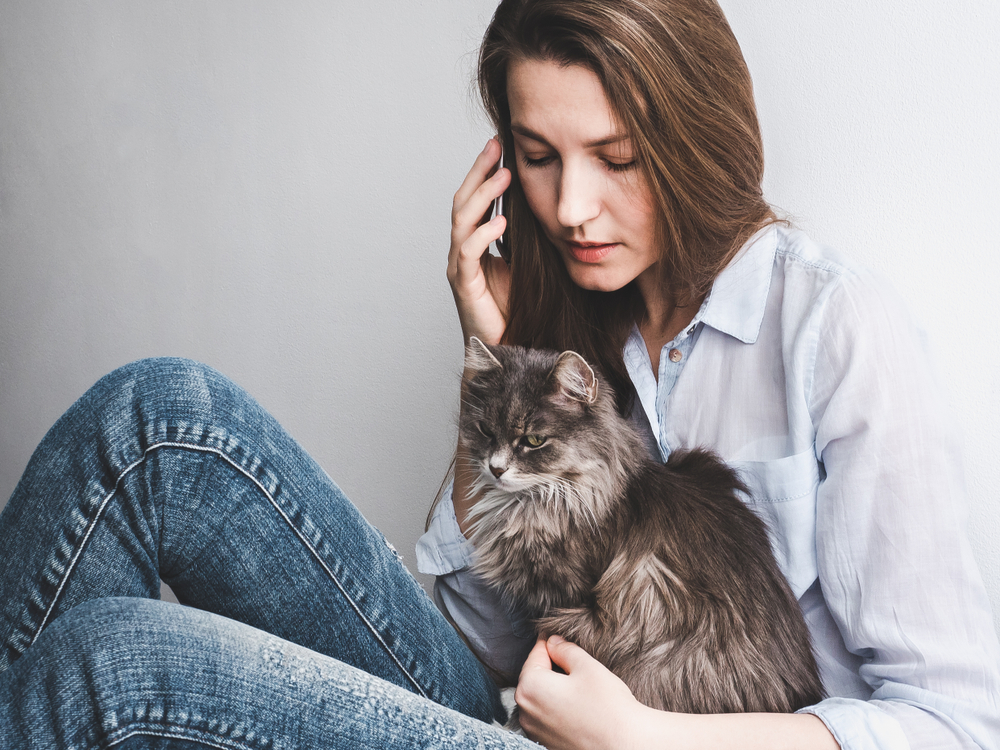It’s almost a cliché. When traveling, your pet will suddenly get sick or injured. The more remote the location, the more inevitable it seems. We hate to think that something like this could happen. But it’s always better to be prepared. Sadly, a few minutes can make the difference between a bad and a good outcome. And knowing you’re prepared for any situation can give you peace of mind.
Your vet will appreciate your efforts to seek immediate help and advice. Delaying treatment can slow or complicate recovery. Of course, not everything is an emergency. Your vet will put you at ease when dealing with the unknown, and they have the experience to make an accurate assessment. But what’s the best way to get in touch with a vet while traveling? Our guide shows you how to get helpful information without having to rely on Google.


5 ways to communicate with your vet while traveling
1. Online Veterinary Platform
One of the positive outcomes of COVID-19 has been the pivot to online services, such as takeaway, grocery delivery, and veterinary advice. People have realized the convenience and businesses can save money in many ways. If veterinarians offer these services, it also benefits pet owners. So, before you leave town, it’s a good idea to ask about the options your clinic is offering.

2. Pet Insurance Chat
An online chat platform with a veterinarian is a popular perk with many pet insurance companies, and many offer this service 24/7, 365 days a year. If you’re comparison shopping, we think this can be a great selling point.
To prepare, be sure to check the limitations of this service before you go, but keep in mind that online chat is not necessarily a substitute for an actual in-office exam.
3. Pangobet
Pangobet is a new online veterinary consultation service that allows you to talk to a licensed veterinarian about your pet’s problems. The site charges a small fee for a 20-minute video call. You don’t have to worry about putting your cat in a carrier and driving to a clinic. Instead, you can get your questions answered in the privacy of your own home.
PangoVet is not a replacement for regular checkups or emergencies. But it does give you accurate veterinary information and advice when you need it. It also provides detailed instructions for follow-up care. As a new service, appointment slots are not yet available 24/7. But as a new dimension of veterinary care, it minimizes stress for you and your pet.
💛 😺 Consult a vet online without leaving the comfort of your couch!

If you want to speak to a vet but can’t get there, PangobetThis is an online service. Consult a vet online Get the personalized advice your pet needs at an affordable price.
4. Local emergency veterinary clinic
Before you leave town, it’s a good idea to find out the location and contact information of the nearest emergency veterinary clinic. Visit their website for relevant information. Veterinary Emergency Group If you need to find a location quickly, check out our website and you will find a clinic near where you are staying to get the quickest service.
5. Animal Poison Control
Cats, like dogs, are inquisitive and can end up touching things they shouldn’t, so if you find yourself in this situation, it’s best to call right away. Animal Poison Control To get expert advice.
In many cases, a quick response is important. Remember that many pets are as clueless as children. You need to keep your pet away from danger. If something does happen, you need to know what to do, including calling a professional. Phone calls are not free, but some pet insurance companies will cover this cost.



Preparing your pet for travel
A vet can only give you the best and most appropriate advice based on the information you provide. If you give them your pet’s full medical history, it will be easier for someone who is not familiar with pets to give you advice. This includes details of recent examinations and medications. The results may not mean much to you, but a professional can get a lot out of it.
Also, make sure your pet’s vaccinations and tests are up to date before traveling – stress can make them more susceptible to preventable diseases. It’s also a good idea to get your cat’s vaccinations up to date and microchipped if they haven’t already.
It’s also a good idea to have contact details for your vet ready in case something happens during your trip – you can easily communicate what happened and ensure your pet gets any aftercare it needs without any hassle.


Conclusion
If anything happens to your pet during the trip, such as getting sick or injured, we highly recommend contacting your veterinarian. Getting accurate information from a professional is better than relying on last-minute, frantic searches and unconfirmed information from websites and bloggers. Luckily, it’s easy to be prepared by knowing who to contact and installing apps that will connect you with the right people.
Knowing what to do in an emergency is never too much. When pets are involved, emotions often run high. Do yourself a favor and add this task to your travel preparation to-do list. Knowing who to contact if something goes wrong will save you time and unnecessary stress if you have the information at hand.
Featured image credit: Iryna ImagoS, Shutterstock




